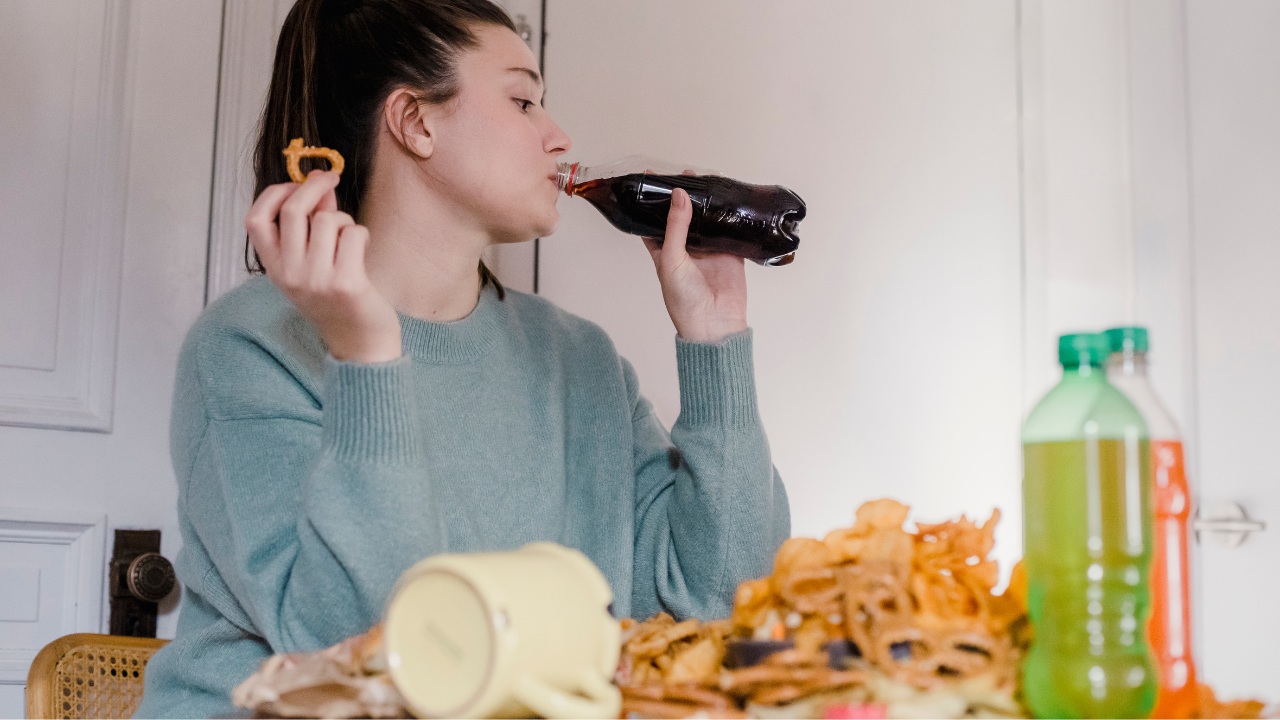What is The Restrict-Binge Cycle?
It often starts out so innocent.
You say to yourself “I am finally going to cut out carbs and be healthier!”
You do this with good intentions. Your friend/neighbor/colleague cut out this food and she lost a bunch of weight. So why not give it a shot? This time you will be better and have more willpower! After all, nothing tastes as good as skinny feels!
But then, you start to feel irritable, depleted, and vulnerable. The honeymoon phase of the diet is over.
There is a trigger that sparks a binge. Perhaps a fight with a friend, a “cheat day”, or delicious cookies in the cafeteria.
All this tension, restriction, and deprivation inevitably leads to a binge eating episode (if not multiple).
You then feel guilty, ashamed, and so angry at yourself. You wonder why you don’t have the willpower you need to finally lose weight.
The cycle repeats as you continue to be reeled in by diet after diet, hoping that the next one will be different.
Does this all sound familiar?
What is the restrict-binge cycle?
The restrict-binge cycle is a vicious cycle that typically starts with the restriction of calories, often in the spirit of weight loss. This restriction often leads to cravings and feelings of tension and, when triggered, can lead to a binge eating episode. After binge eating, individuals often feel ashamed, guilty, and they fear regaining weight back so the cycle restarts as they restrict their calories (or specific food, nutrient, etc.) all over again.
Restriction
Restriction is often the first part of the cycle. This can be in the form of fad diets, calorie counting, or cutting certain nutrients or food groups out of your diet. You may also restrict because you just had a binge.
If you have read any of my diet reviews, you know that I always discuss how restriction of anything in our diet cannot last forever. Our biology won’t let it.
Increased tension, cravings, and emotions
Eventually we start to feel irritated and vulnerable because of the restriction. The honeymoon phase of the diet is now over. At this point, it probably feels like you are no longer in the driver’s seat.
Binge eating
Eventually there is some kind of trigger for a binge. This might be a fight with a friend that sends you into emotional eating. It may be a deadline at work that is quickly approaching that leads to stress eating. Maybe you see cookies in the cafeteria and because you’re being “good” and you are not having sweets or carbs (or whatever else you are restricting) they become a trigger when you smell them or see your friend enjoying them.
Cheat days or cheat meals are also often a trigger for binge eating. When you know there is a cheat day coming up and you restrict the other 6 days of the week, this can lead to binge-type eating for many people. Cheat days are really just glorified binge eating.
Whatever the trigger may be, the binge is not your fault. It is not because you don’t have willpower or motivation. Your body is trying to survive and it is not sure if you were restricting in the spirit of “health” or because you were deserted on an island with no food.
Your body is always trying to protect you in any way that it can. It is going to feel desperate for food and look for a quick and pleasurable reward. This actually explains why we usually binge on foods such as sweets or carbs in general. The body wants a very quick source of glucose from those carbohydrate-containing foods.
A quick note about binge eating disorder: binge eating disorder (BED) is an eating disorder that is often characterized by periods of eating large amounts of food to the point of feeling uncomfortable. If you struggle with any of the characteristics of BED, please reach out to a qualified practitioner. Complete recover is possible and it is so important to seek treatment.
Feelings of shame and guilt
After a binge, you might experience shame and guilt and you might feel worthless and tell yourself this is all your fault. You might even think about how this failure applies to other aspects of your life.
This is where the cycle restarts. You either go back to restriction because you feel painfully full from the binge or to compensate for the excess calories, carbs, etc. that you consumed. You also might restrict because you simply feel guilty for eating.
Steps to break the restrict-binge cycle
If you feel trapped in this cycle, this is your reminder that you can break it! It does not need to be this way forever.
Have self-compassion
Again, this is not your fault. We live in a culture where diets are always being thrown at us and we’re always encouraged to not eat “this or that” food, restrict our calories, hit the gym X days per week. All of these signs around us make it very difficult to get out of the cycle.
Plus, you have the binge for a reason. Your body is desperately trying to get in the nutrients that it needs. Your body is trying to keep you safe.
Eat consistently throughout the day
I say this all the time - eating as little as possible is never going to pay off.
After a binge, try to get back to normal eating habits. Say you had the binge at night. Get back to eating breakfast the next day. Try your best not to restrict. It’s okay if you don’t know what “normal” eating looks like for you. Start by eating something every few hours.
Honor your hunger
This is one of the principles of intuitive eating. We can’t ignore our body when it tells us that it’s hungry. When we do, this sets us up for a binge. Eat when you are hungry. Incorporate protein, fat, and fiber to help you stay full and satisfied.
Find support
Many dietitians and therapists work directly with binge eating disorder. If you are struggling with BED or any other eating disorder or disordered eating, don’t be afraid to ask for help! I promise there is a way for you to enjoy eating again.
Bottom line
The restrict-binge cycle is a cycle of restriction, binging, feelings of guilt, and repeat. It is often the result of dieting. In order to break the cycle, be sure to honor your hunger, eat consistently, and remember to have self-compassion, as this is a natural response to dieting.
































